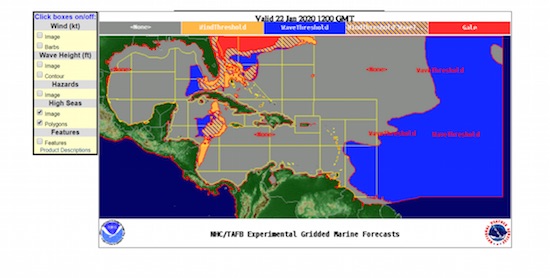The global coronavirus pandemic has affected all of our lives in countless ways, and ocean voyagers are no exception. Over the past several weeks, voyagers have scrambled to move their vessels out of certain areas and back to home ports, or at least to a more desirable location from their point of view. This has led to some transoceanic passages at a less desirable time of year, and in some cases intended destinations had to change during the passage — both due to dynamic weather and rapidly changing conditions at ports. Events that many have looked forward to for years, such as the Newport Bermuda Race, have been cancelled and some long-distance rallies have had to be paused.
While it is impossible to know at this time how the Northern Hemisphere sailing season will unfold, it is likely that long-standing plans may need to be changed or cancelled. On the other hand, while social distancing is not possible on board most vessels, the vessels themselves do offer an environment with no significant interaction with other people during a voyage, and this may mean that family groups — especially from the same household — who wish to do some cruising this summer will be able to do so. There will likely be limitations, though, particularly in terms of available ports as well as activities ashore at ports. Dining at restaurants or yacht clubs may be severely restricted and perhaps not possible at all in some places, and availability of provisions and services may also be limited. Advance research for any cruising plans will be more important than ever, and flexibility along with self-sufficiency will be key as situations may change quickly in some areas.
The situation will require even more vigilance when it comes to making weather-related decisions. When planning a voyage, intermediate or alternate ports are often part of the plan should the weather conditions not allow for the primary plans to be followed through. In the current situation some of these alternatives may not be available, and this will mean that when considering weather forecasts for the intended route, asking the “what if” questions will be critical. It will be necessary to look very carefully at worst-case scenarios in terms of the weather when making decisions about departure times and routes to reduce the possibility of getting into an unwanted situation if an alternate port is not available.
 |
|
New experimental “polygon-based” (shapes) marine warnings incorporated in a Marine Graphical Composite Forecast map from the National Hurricane Center and the Tropical Analysis and Forecast Branch. |
The next couple of months offer an opportunity for ocean voyagers to spend some time taking a fresh look at available resources. The delivery of weather information is continually changing, so visiting NOAA’s Ocean Prediction Center website and their National Hurricane Center website is a great thing to do for many who have time on their hands. These websites each contain a great deal of information, including the latest methods for those at sea to receive products. In the case of the National Hurricane Center website, a description of experimental polygon-based warnings was posted in February, and on the very day I am penning this newsletter an update of their products and services for 2020 has been posted, which provides a great deal of information for the upcoming hurricane season.
Another website worth spending some time exploring is NOAA’s Storm Prediction Center. The Storm Prediction Center is responsible for providing forecasts, watches and warnings for severe thunderstorms and tornadoes. Their area of responsibility does not include the high seas, but it does extend into U.S. coastal waters of the Atlantic, Pacific and Gulf of Mexico. Since many folks may need to consider shorter coastwise cruising this summer rather than longer offshore passages, the information provided by this website may have more relevance than normal.
The Cruising Club of America sponsored a daylong seminar at the end of February this year where several speakers offered talks about weather and ocean cruising. This seminar was held in Seattle, so it has a West Coast/Pacific focus, and all of the presentations are available online at no cost. You can access the presentations here. A link is also available on that website for a similar presentation from 2018, which was held on the East Coast and had a somewhat more Atlantic focus.
Be safe in the coming months, both ashore and at sea.

